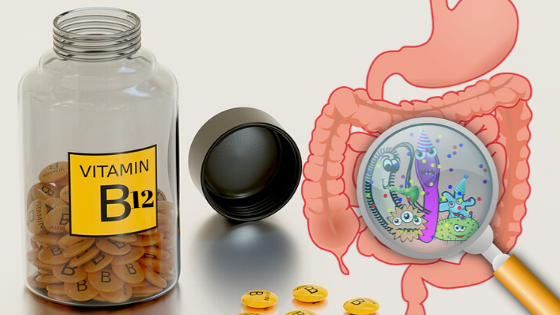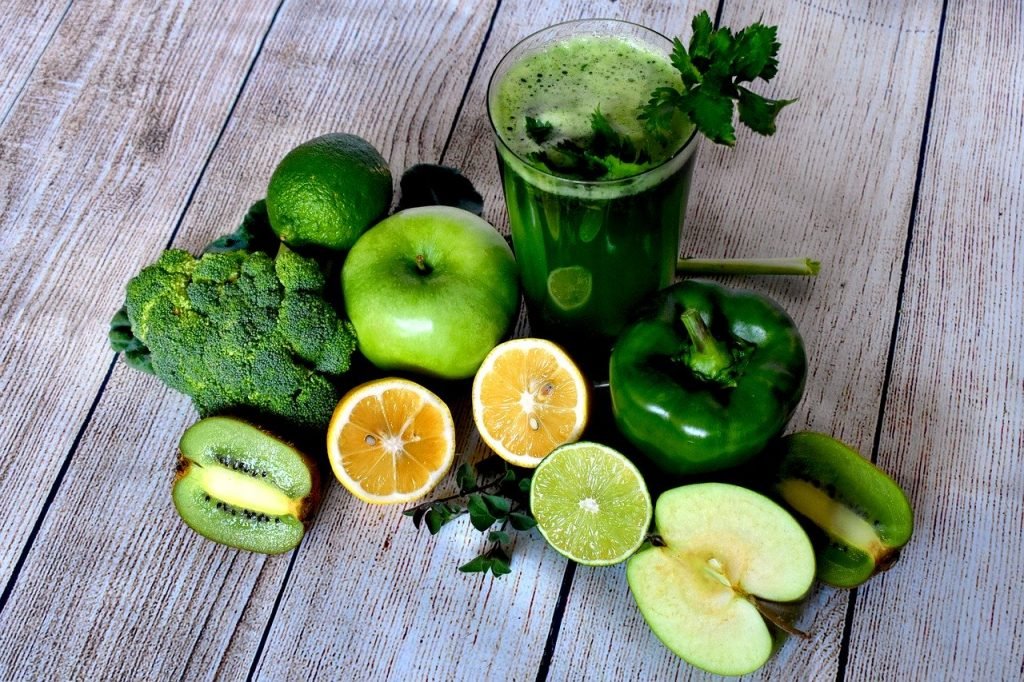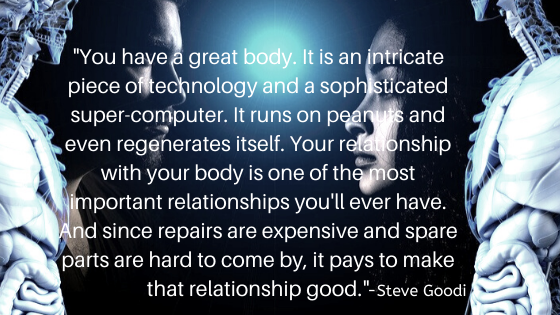Vitamin B12 Myths – Can humans produce vitamin B12 in the gut?
Table of Contents
Can humans produce vitamin B12 in the gut?
Vitamin B12 deficiency only in vegans and vegetarians? Or can we all produce vitamin B12 in the gut?
One of the most controversial issues when it comes to vegetarian and vegan nutrition is the supposed lack of vitamin B12, which has severe consequences for people who chose this diet.
Almost everyone, it seems, is at risk of a B12 deficiency. Regardless of whether it is omnivores, vegetarians or vegans
This topic contributes to fears and worries that if you only eat plant products, you expose yourself to life-threatening danger since vitamin B12 you only can find in animal products. Under great fear, many feel compelled to take expensive B12 tests and invest their money in supplements.
Various studies say Vitamin B12 deficiency is relatively common; nearly 40 percent of people in the US are deficient in this nutrient.
B12 Deficiency May Be More Widespread Than Thought
Vitamin B12 deficiency in the aged: a population-based study
How does that come? Not all people are vegetarian or vegan.
The cause of many of the symptoms attributed to B12 can also come from an unnatural lifestyle, stress, worry, one-sided nutrition, negative thinking, too little sleep, pollution, electro-smog, and chemicals, for example.
Have you ever wondered how millions of vegetarians and vegan could survive until now?

What is vitamin B12?
Vitamin B12 is a water-soluble, heat-sensitive vitamin from the B group. Some also call it cobalamin because it contains the trace element cobalt as the central atom.
Vitamin B12 is the most chemically complex of all vitamins, and we rarely can find it in the chemically pure form. It is usually bound to other molecules, and these different binding partners also determine the names of the B12 types that form in this way.
The best known Vitamin B12 forms are:
Methylcobalamin: is a natural and bioactive form, works closely with folic acid and protects blood, nerves, and DNA.
Adenosylcobalamin: is also a natural and bioactive form and is involved in energy production in the mitochondria.
Hydroxocobalamin: is also a natural form and has the best depot effect of all B12 kinds.
Cyanocobalamin: is the synthetic, inactive form of vitamin B12, which hardly ever occurs in nature and food. In many food supplements, they use this form, and the effect should be mediocre.
See also > Folate (B9): What It Is, Where to Get it, and Why Folate is Different from Folic Acid
Why do we need vitamin B12
B12 is essential for the formation of red blood cells. Also, it plays a significant role in protecting nerve cells. The vitamin is vital for cell division and DNA synthesis. B12 is essential for proper digestion, especially for recovery and Intake of the food components as well as for the utilization of carbohydrates, fats, and proteins. Also, B12 is essential for energy production in the mitochondria.
Look at the symptoms of deficiency
Depression, Burnout, Forgetfulness/dementia, sleep disorders, lack of concentration, dizziness, nervousness, confusion, psychosis.
Some physical symptoms are
Pale skin, constant exhaustion, physical weakness, Immunodeficiency, susceptibility to infections, Tingling, and numbness in limbs, Inflammation, Indigestion, Constipation, diarrhea, muscle tremors, graying of hair, hair loss. And even Anemia, paralysis, coordination disorders, spastic disorders, blurred vision, arteriosclerosis, heart attack, incontinence, and infertility.
The B12 issue is not as clear as many experts, doctors or nutritionists claim. There is also disagreement among experts.
Many people believe in vitamin B12 myths. Many reasons lead to this belief. There is a lack of understanding of our bodies, especially school medicine, which sees the human body as parts instead of the whole fantastic system that it is. Alternative medicine considers the body to be a whole system. Naturopathic medicine believes that the body can heal itself.
See also How To Know If You Have Vitamin Deficiency – The Signs
And How Healthy Are Fruits And Vegetables – Do We Get Enough Nutrients?
How does it come to Vitamin B12 deficiency?
It is microorganisms that exclusively produce Vitamin B12. These we can mainly find in the intestines of animals. The animals incorporate Vitamin B12 into their tissues; it primarily is in meat, milk, and egg yolk.
However, the microorganisms on the surface of fruits and vegetables can also form Vitamin B12. The Vitamin is not produced in plants but in bacteria, which we can find in the soil and the gut of humans and animals. In a healthy intestinal flora, the microbiome will produce a required portion of B12.
Vitamin B12 can only be absorbed by the body if there is a sufficient amount of the intrinsic factor. This fundamental factor is a particular transporter protein for the B12, which is formed by the gastric mucosa.
The human intestinal flora also produces Vitamin B12, but only if it is in order.
Who is affected by vitamin B12 deficiency?
So if you think that only the vegans are affected, you’re wrong.
Risk groups where a vitamin B12 deficiency could be likely are:
Older people, People who rarely eat raw food and natural foods. People with gastrointestinal disorders (Celiac disease, gastric acid deficiency, gastritis, People with kidney and liver diseases, pregnant and lactating women, people with autoimmune diseases, people who take medication, patients with diabetes.
Vegans and Vegetarians.
We can assume that many vegans, due to their overall significantly healthier lifestyle and selection of better foods, also have skills to compensate for the lower vitamin B12 intake in other ways.
It seems, there also exist vegans without a B12 deficiency.
But how do these people live?
They never eat fast food, never drink alcohol, and have never smoked. Also, they eat only organic/raw food and are not afraid to eat worms in the fruit or unwashed wild plants. They live stress-free, are not vaccinated, and may consume a lot of algae, spirulina and wild herbs.
If you can live like this, possibly your Vitamin B12 level is in order.
Is B12 deficiency a “civilization disease?”
According to the current state of knowledge, only animal products would contain appropriate amounts of B12 that can be used by humans. But we forget that it is not a classic component of animal food but a product of microorganisms. Animals in nature take it up via the soil attached to the feed. B12 deficiency is a “civilization disease.”
In India, for example, there have been communities that are vegan for centuries, as the Jains. While they traditionally had no problems with vitamin B12, the ones who emigrated to England, developed a deficiency due to the different conditions.

Iranian Villagers
Halstead et al. reported that some Iranian villagers with very little animal product intake (dairy once a week, meat once a month) had normal B12 levels. None had megaloblastic anemia. Their average B12 level was 411 pg/ml, which was quite high, considering their diet. The authors speculated this could be because their diets, which were very low in protein, allowed for B12-producing bacteria to ascend into the ileum where the B12 could be absorbed. They also speculated that because they lived among their farm animals and their living areas were littered with feces, they picked up enough B12 through contamination.
Source >Intestinal Bacteria as a Vitamin B12 Source
Not only the human’s conditions changed but also the animal feed production, which is why animals are also fed B12, among other things.
Our soil is depleted. And some animals never see green grass, especially the ones in factory farms. Many are on industrial feedlots where they feed them a mix of antibiotics, hormones, protein supplements, and GMO corn.
Read > Glyphosate and Roundup proven to disrupt gut microbiome by inhibiting shikimate pathway.
Civilization Disease – how to save the world
Can humans produce vitamin B12 themselves?
“This human mechanism, this is the most sophisticated gadget on the planet.”- Sadhguru
“You have a great body. It is an intricate piece of technology and a sophisticated super-computer. It runs on peanuts and even regenerates itself. Your relationship with your body is one of the most important relationships you’ll ever have. And since repairs are expensive and spare parts are hard to come by, it pays to make that relationship good.”-Steve Goodier
If this is so, our body should also be able to produce our needed vitamins.
Our body produces 5 million new cells every single second. And it consists of several trillions of cells and an unimaginably large number of atoms. And such an intelligent system that can coordinate these millions, even trillions of cells, should not be able to absorb bacterial feces? Although it is so urgently needed and although it is available in large quantities in our bodies?
Is it possible that our body determines its B12 level itself?
Vitamin B12 (cobalamin) plays a crucial role in metabolism. It is involved in blood formation, cell growth and cell division, the formation of DNA and RNA, the formation of the covering of nerve fibers, and the breakdown or conversion of the dangerous amino acid homocysteine. It is also clear that the body’s bacteria produce vitamin B12. These are available in the body from our mouth to the intestines.
Vitamin B12 – Questions Answered
The sparse research of the B12 self-production of our body and the question can humans produce vitamin B12 in the gut, is probably because the whole topic of vitamin B12 has become an excellent business for laboratories, doctors, and food supplement manufacturers.
The human microbiome and Vitamin B12 production
VITAMIN B12 AND GUT BACTERIA
Vitamin B12 and gut bacteria: can humans produce their own vitamin B12 supply in the gut? If so, which bacteria in the intestines can create it?
Vitamin B12 Production by Bacteria
Vitamin B12 is one of the most fascinating and complex biological molecules. While all higher forms of life depend on supply, vitamin B12 can only be produced by certain bacterial species. Neither plants nor animals have acquired the ability to provide the vitamin themselves in the course of evolution, without the help of bacteria.
As a result, for a long time, all higher organisms were expected to be dependent on the intake of vitamin B12 from food. However, with increasing research into the human microbiome – the collection of bacteria inside and on our body – this understanding has been drawn into question.
It is becoming more and more apparent that complex life forms, such as humans and other animals, may have formed a symbiotic relationship with certain B12-producing bacteria over the course of evolution, which create the vitamin in our intestines and thus contribute to our overall supply. This would be especially good news for vegetarians and vegans who have hardly any B12 sources in their diet.
This article will illuminate this exciting area of vitamin B12 research, which has unfortunately received little attention and will explore the possibilities and limitations of this type of B12 uptake.
The Human Microbiome
Although the human body consists of between 10-40 trillion cells, this enormous number by far exceeds the bacterial population that inhabits our body – by almost a hundredfold. With around 100 trillion bacterial cells, bacteria are clearly in the majority Also, in regards to genetic material, bacteria surpass us by far: for every human gene in our body, there are around 1000 bacterial genes from up to 10 000 different bacterial strains
Our body is, therefore, far less the autarchic biological machine than modern medicine often considers it to be. Rather, it is a diverse ecosystem in which numerous life forms exist, at best symbiotically, and in which human cells are clearly outnumbered.
Continue reading here: VITAMIN B12 AND GUT BACTERIA.

Vitamin B12 and Vegan Foods
In traces, vitamin B12 also occurs as a micro bacterial contaminant in and on plants, especially at the roots – however, these traces are so small that they are often hardly detectable. Additionally, the vitamin B12 content can vary according to factors such as location, soil quality, and type of microorganism present – meaning that vitamin B12 from this source is too rare, unreliable and minuscule to rely on as a vegan supply.
Moreover, today the soil flora in many regions is so destroyed by industrial agriculture that fruits and vegetables grown there generally contain no more than minor traces of vitamin B12. Various fertilizers and pesticides have caused large parts of the soil flora to die.
Where is Vitamin B12 Made in the Body?
Even in the human body, vitamin B12 producing microorganisms can be found throughout almost the entire length of the digestive tract. The majority of these are found in the large intestine, where they produce quite significant amounts of vitamin B12. Unfortunately, our bodies are unable to utilize this B12, as it can only be absorbed in the small intestine. In this way, feces contain a considerable vitamin B12 content – but this is not available to the body.
Nevertheless, a 1980 study published in the prestigious Nature magazine that indicates that even the small intestine is able to produce a significant amount of vitamin B12. The same we can possibly say for the mouth and throat. This is likely the reason why approximately 10-40% of vegans that were examined did exhibit no signs of a vitamin B12 deficiency, despite their diet containing almost none.
However, to rely on this endogenous provision of vitamin B12 would be somewhat careless. Several studies have shown that between 60 and 90% of vegans are suffering from B12 deficiency; the risk here is clear and we should not underestimate. Source: VEGAN VITAMIN B12
How can you test the B12 level?
There are various ways to find out your Vitamin B12 level. The usual blood test offered by the doctor is by no means meaningful because it does not differentiate between active and inactive B12.
The HoloTC test is much more precise because it only measures the active Vitamin B12.
https://www.ncbi.nlm.nih.gov/pmc/articles/PMC4899389/
Do you need the nutritional supplement Vitamin B12?
If you want to be sure, it is advisable to supplement vitamin B12, as a deficiency can have very far-reaching consequences. You can take tablets or drops or have it injected.
The most common nutritional supplement is the cyanocobalamin, which does not occur naturally, however, it is inactive and has to be activated by the organism. It would be better to take the natural methylcobalamin because it is already the active form.

See also > Vitamin B12: Why it’s Important and How to Avoid B12 Deficiency
Conclusion
Back to nature. Keep your gut healthy. Support organic farmers and buy locally grown vegetables and fruits. Eat only organically grown vegetables, avoid processed packaged food, and fast food. Stay away from pharmaceuticals, especially antibiotics. Take care of your gut and your lifestyle.
Take only the right supplements if necessary.
Join FMTV/Gaia and watch> The Gut Goddess and The Gut Movie
How To Support Your Microbiome That Keep You Healthy?
What Is The Right Food To Cleanse Your Colon And Happy Microbiome?
How To Keep Your Gut Healthy With Colon Hydrotherapy
How To Eat Yourself Happy – Your Gut Influences Feelings
MICROBIOME – HOW TO TAKE CARE OF A HEALTHY INTESTINAL FLORA
VEGAN FOODS THAT HELP YOU TO CLEANSE YOUR COLON
Protect Yourself and Your Family from the most common chronic vegan deficiencies — without taking a bunch of supplements. Click here







